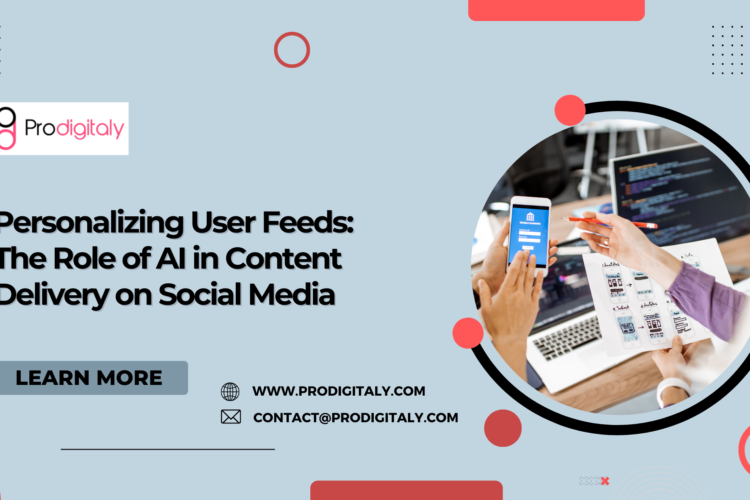
Introduction:
Realizing what customers do and will do is vital for achievement in the swiftly changing digital marketing world. Firms have typically used market studies, surveys, and demographic details to learn about consumer wants. But, with artificial intelligence (AI) now here, a brand-new data-driven marketing era has started, changing how businesses engage with their customers.
It examines AI-driven customer insight’s major shift and its game-changing effect on digital marketing plans. From the basics of AI-driven insights to executing them well, we explore the applications, advantages, and difficulties of using AI to fuel marketing triumph.
Understanding AI-Driven Customer Insights:
AI-driven insights for customers involve using intelligent algorithms and machine learning methods. These analyze huge amounts of data and find helpful information about how people act. Unlike old ways of manually analyzing data, AI processes data quickly. It gives companies timely, practical details to shape marketing plans.
Applications of AI in Customer Insights:
AI-powered customer insights find applications across various aspects of digital marketing:
- Let’s talk about personalization.
- Computers are helping companies Google ads. They study what you like. With your past purchases, they suggest products you may want.
- On Predictive Analytics now:
- AI checks old data. This data helps predict the future. If AI sees patterns, it knows what people might want next. Businesses change their marketing based on these predictions.
- Let me explain Sentiment Analysis:
- AI tools read customer comments online. They understand if the comments are happy or mad. Companies learn what problems to fix. This way, they can change what they says quickly.
III. Implementing AI-Driven Customer Insights:
To effectively leverage AI-driven customer insights, businesses need to:
- Gather data about customers.
- Find details through site metrics, social networks, and CRM solutions.
- Clean-up info:
- Take out dupes, fix wrongs, keep the same formats — assure data for AI checks stays perfectly accurate.
- AI powers tools:
- Blend AI knowledge into marketing programs and processes so you can make decisions quickly and start tasks smoothly. Marketing teams might need tech crew help for integration and data sharing.
IV. Benefits of AI-Driven Customer Insights:
The adoption of AI-driven customer insights offers several benefits for businesses:
- Superb Experience for Buyers:
- AI helps businesses serve up custom offers and content. It makes each customer feel special, enhancing satisfaction and loyalty. Relevant marketing equals happy clients.
- Superlative Returns:
- AI identifies top prospects. Targeted campaigns then hit the bullseye, driving stellar conversion rates and ROI. Smart spending optimizes marketing dollars for maximum gains.
- Defeating Competitors:
- Understanding customers better than rivals gives businesses a crucial edge. AI predicts trends so firms can adapt rapidly to evolving markets. This agility ensures they stay ahead.
V. Overcoming Challenges and Limitations:
Despite the many benefits of AI-driven customer insights, businesses must address several challenges:
- Privacy Questions:
- Using smart tech brings up worries. Companies must obey privacy laws. They must keep customer info safe and secure. This technology gathers lots of data. Businesses need strong security for customer details.
- Accuracy and Reliability:
- The value of AI insights hinges on the quality of training data. Companies must validate AI outputs against real-world facts. They should also use feedback loops, allowing AI systems to learn and continually enhance precision.
- AI has complexities.
- Merging AI systems into present marketing tools is complicated and lengthy. Organizations must invest money and expertise to use AI insights in marketing processes.
Conclusion:
To sum up, AI customer insights mean a significant change in digital marketing. They give businesses new chances for growth and connection with customers. By using AI to know and predict customer behaviour, companies can make marketing campaigns that fit each person better. It increases customer happiness and profits and helps companies beat competitors. Even with challenges, the good things AI insights bring are worth more than the risks. So, for businesses that want to stay ahead in today’s world, AI insights are very valuable.
FAQs:
1. How do AI gather and study information on customers?
Answer: AI collects customer data through websites, social media management, buying habits, and CRM programs. It uses complex calculations and machine learning to process this information. AI identifies patterns, trends, and relationships in the data. It provides insights into how customers are and what they prefer.
2. Which industries can take advantage of AI-powered customer knowledge?
Answer: AI-driven customer insights are useful for many industries. These include retail, online shopping, healthcare, finance, telecommunications, and more. Businesses collecting and analyzing customer data benefit. AI insights help with marketing plans and engaging customers better.
3. Can AI insights match the precision of conventional research techniques?
Answer: AI insights can be extremely precise and dependable when properly trained on substantial data pools and validated against factual information. Unlike traditional research methods requiring manual evaluation and understanding, AI rapidly processes immense datasets, granting businesses deeper comprehension of consumer conduct and inclinations.
4. What actions must companies pursue to guard customer privacy when using AI?
Answer: Firms should enact robust security controls to safeguard customer information, like encryption, access limits, and routine security checks. Additionally, they ought to anonymize data wherever feasible and obtain express client approval before gathering and handling their private details. Companies must also honour privacy rights and follow relevant data protection laws like GDPR or CCPA.
5. Can companies ensure AI insights’ precision and dependability?
Answer: Businesses can check AI insights’ accuracy reliability. They must confirm results against actual data. Also, they need feedback systems to keep improving. It may involve testing different versions, comparing AI insights to humans’ views, and refining algorithms based on performance data and user responses.
6. What should we think about when using AI to learn customer data?
Answer: We must be careful with AI customer insights. People may worry about privacy, unfairness, openness, and responsibility. Companies should use fair data sets when training AI. That way, the AI won’t be biased or discriminated against. It’s also crucial to be open and accountable. It builds trust with customers and others. We must make sure AI insights get used properly and ethically.
7. Can AI provide insights that can substitute human intuition and creativity in marketing?
Answer: Insights driven by AI can automate tasks and provide data-backed guidance. However, human judgment and creativity are crucial for developing persuasive marketing campaigns and building genuine customer connections. AI can enhance human decision-making by delivering actionable insights and optimizing marketing strategies. But it can only partially replace the human touch.



